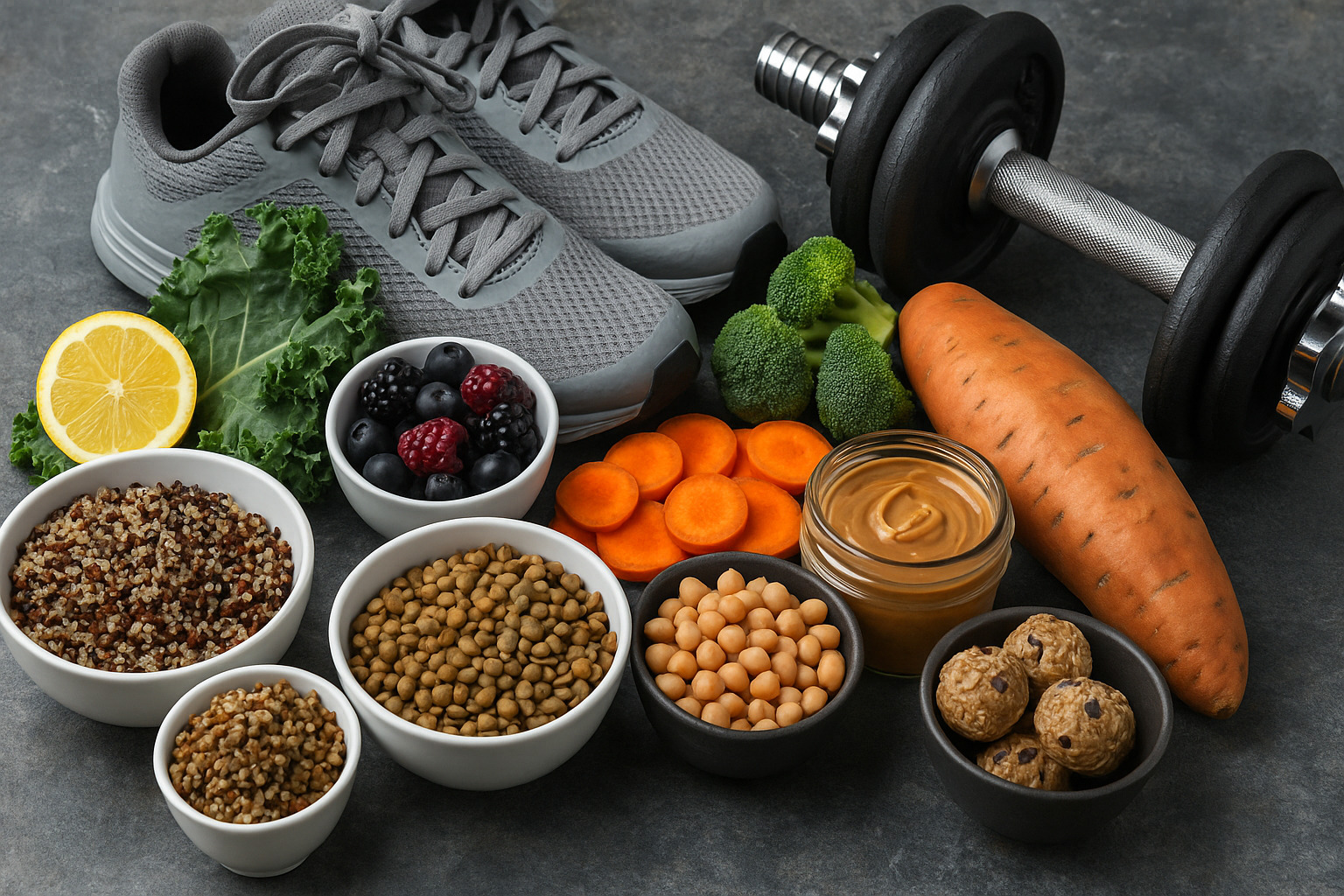A plant-based lifestyle has moved from niche interest to mainstream choice among athletes seeking performance, recovery, and long-term health benefits. Many high-performing professionals and recreational athletes are thriving on vegan diets, yet the approach demands strategic planning to meet nutritional needs.
Pros of a Vegan Diet for Athletes
1. Anti-inflammatory properties
Plant-based diets are naturally rich in antioxidants and phytochemicals that help reduce exercise-induced inflammation. Lower inflammation can shorten recovery time and allow for more consistent training sessions.
2. Improved cardiovascular health
Whole plant foods tend to be low in saturated fat and cholesterol-free, supporting better blood flow. Enhanced circulation delivers oxygen and nutrients to muscles more efficiently during workouts.
3. Weight management
A vegan diet can make it easier to maintain a healthy body composition. High fiber content in fruits, vegetables, and legumes promotes satiety without excess calories.
4. Gut microbiome support
The diverse range of plant fibers nourishes beneficial gut bacteria, which can influence digestion, nutrient absorption, and even immune function.
5. Ethical and environmental benefits
Many athletes choose veganism for reasons beyond performance, including reduced environmental impact and animal welfare.
Cons of a Vegan Diet for Athletes
1. Risk of nutrient deficiencies
Certain nutrients require extra attention, including vitamin B12, iron, zinc, calcium, iodine, and omega-3 fatty acids. Deficiencies can hinder energy levels and performance.
2. Higher meal planning demands
Achieving adequate protein intake without animal sources requires intentional food combinations and consistent variety.
3. Caloric density challenges
Plant foods are often less calorie-dense, making it necessary for high-performance athletes to consume larger volumes of food to meet energy demands.
4. Limited convenience options
Traveling or competing in areas with few vegan-friendly choices can complicate nutrition planning.
5. Potential digestive adjustments
A sudden shift to a high-fiber diet can cause bloating or discomfort until the digestive system adapts.
Key Nutrients to Monitor
- Protein: Lentils, chickpeas, tofu, tempeh, edamame, quinoa, and seitan
- Vitamin B12: Fortified plant milks, nutritional yeast, or supplements
- Iron: Beans, spinach, pumpkin seeds, fortified cereals, paired with vitamin C-rich foods to boost absorption
- Calcium: Fortified plant milks, tahini, kale, almonds
- Omega-3s: Flaxseeds, chia seeds, hemp seeds, walnuts, algae-based supplements
- Zinc: Whole grains, legumes, nuts, seeds
Practical Tips for Vegan Athletes
- Plan protein at every meal to support muscle repair and growth.
- Pre-cook staples like beans, lentils, and grains for quick meal assembly.
- Incorporate smoothies for calorie and nutrient density.
- Experiment with plant-based sports nutrition products such as protein powders or recovery drinks.
- Time nutrient intake to align with training demands, emphasizing carbs pre-workout and protein post-workout.
Recipes for Performance and Recovery
1. Protein-Packed Lentil and Quinoa Bowl
Ingredients
- 1 cup cooked quinoa
- 1 cup cooked green lentils
- 1 cup roasted vegetables (broccoli, carrots, zucchini)
- 2 tablespoons tahini
- Juice of 1 lemon
- Fresh parsley
Instructions
- Combine quinoa, lentils, and roasted vegetables in a bowl.
- Whisk tahini, lemon juice, and a splash of water for dressing.
- Drizzle dressing over the bowl and top with parsley.
2. Post-Workout Recovery Smoothie
Ingredients
- 1 frozen banana
- 1 cup mixed berries
- 2 tablespoons hemp seeds
- 1 scoop plant-based protein powder
- 1 cup fortified oat milk
Instructions
- Blend all ingredients until smooth.
- Drink within 30 minutes of completing your workout.
3. Chickpea and Sweet Potato Stew
Ingredients
- 2 cups cubed sweet potatoes
- 1 can chickpeas, drained
- 1 cup chopped spinach
- 1 can coconut milk
- 1 tablespoon curry powder
- 1 teaspoon grated ginger
- Salt and pepper to taste
Instructions
- In a pot, simmer sweet potatoes, chickpeas, coconut milk, curry powder, and ginger until the potatoes are tender.
- Stir in spinach and cook for 2 minutes.
- Adjust seasoning and serve hot.
4. Pre-Workout Energy Bites
Ingredients
- 1 cup rolled oats
- ½ cup peanut butter
- 2 tablespoons ground flaxseed
- ¼ cup maple syrup
- ¼ cup dark chocolate chips
Instructions
- Mix all ingredients in a bowl until combined.
- Roll into bite-sized balls and refrigerate for 30 minutes.
Final Thoughts
A vegan diet can support athletic performance when planned with attention to nutrient needs and energy requirements. The right approach combines balanced meals, strategic supplementation, and creative recipe choices that fuel training and recovery effectively.
